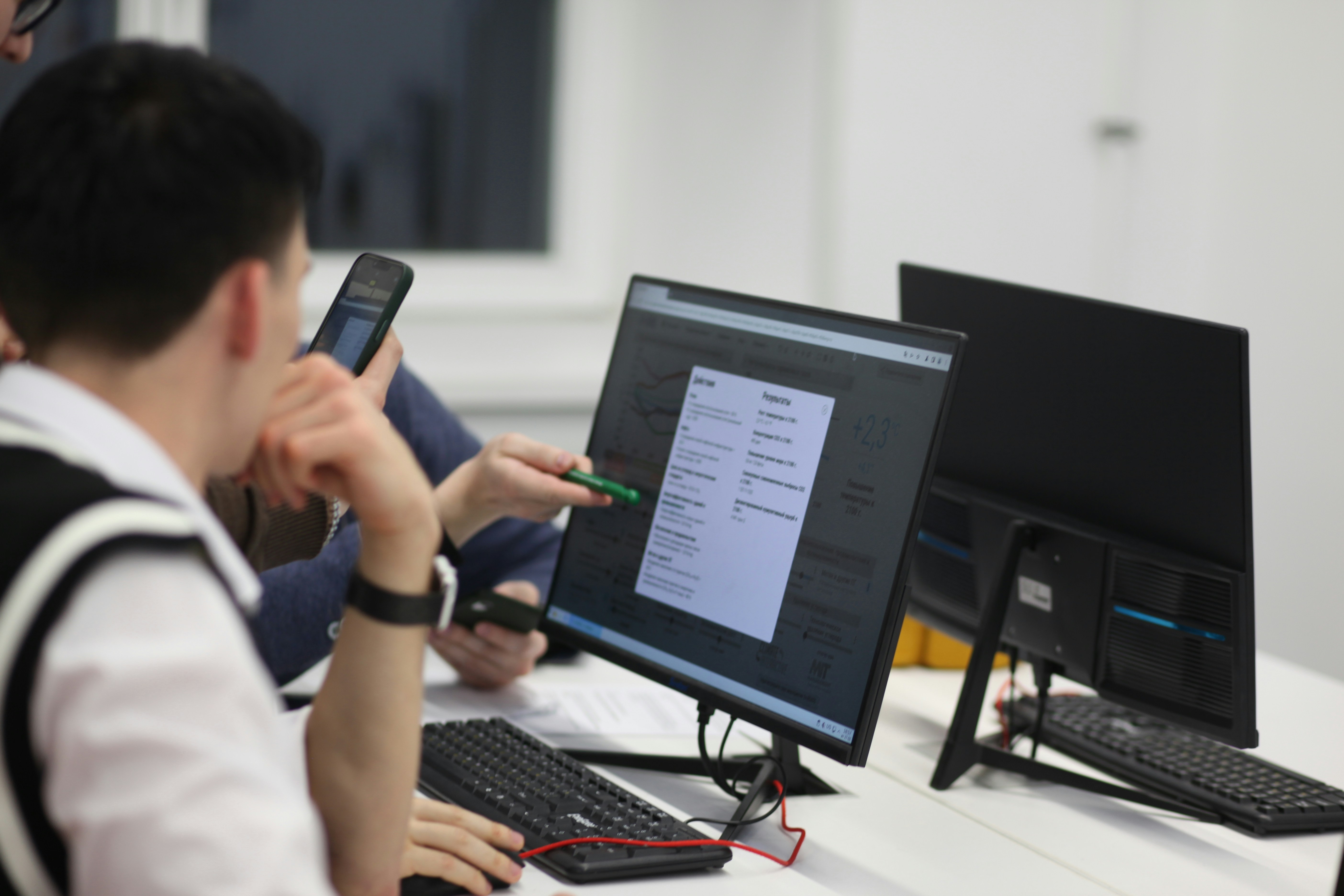Listen to this article
Study Skills
How do I manage my revision?


Study Skills
How do I manage my revision?


Study Skills
How do I manage my revision?



Summary
Revising for exams can be daunting, and you may feel stressed, anxious, or unable to cope effectively with the volume of material to review. With the right strategies in place however, you can learn to manage your workload better and reduce feelings of overwhelm.
Make a plan
Maximise your minutes
Get set up
Self-care
Seek support
Summary
Revising for exams can be daunting, and you may feel stressed, anxious, or unable to cope effectively with the volume of material to review. With the right strategies in place however, you can learn to manage your workload better and reduce feelings of overwhelm.
Make a plan
Maximise your minutes
Get set up
Self-care
Seek support
Read this article
2.5m
Make a plan
Start by creating a plan to map out your revision. What do you know about the exam - will you have to answer questions on every topic, or will it be more selective? If so, can you focus on your strongest topics only - this can make a huge difference to the amount of work needed.
Think about which topics you find easiest and most challenging, then start allocating some time, giving more time to those that are hardest
You could also think about when in the day you work best and schedule the harder topics for those times
Finally, if you have more than one exam, keep the exam dates in mind and prioritise topics that your earlier exams cover
Maximise your minutes
Make the most of your study sessions by incorporating active revision methods to enhance long-term retention. Evidence consistently shows that engaging and interacting with your material using flashcards, mind maps, quizzes, or explaining what you’ve learnt to someone else improves your recall and understanding while copying out notes or rereading is much less effective.
Get set up
A calm and comfortable workspace will help you focus on revision, so make sure it's somewhere free from distractions. Keeping it organised will minimise stress, so have everything you need to hand so you don't need to break the flow to go and find something. Disable notifications or set limits on your screen time to incentivise you to stay off your device. Ensure that your area is adequately lit and well-ventilated and that your desk and chair are set up to help you maintain a good posture.
Self-care
Maintaining physical and mental health is crucial, especially during stressful periods such as revision. Neglecting wellbeing can negatively impact your ability to study effectively, so be sure to set aside time to focus on what makes you happy and healthy. Something as simple as meeting a friend for coffee or taking a quick walk can improve focus and reduce stress.
It's also crucial to take regular breaks to fight fatigue, keep your mind fresh and focused, and avoid becoming burnt out. Time management techniques like the Pomodoro technique can help you divide your day and remind you to step away from the screen.
In addition to getting outside and moving your body, try to eat balanced meals to keep energy levels stable and stay hydrated. Managing your sleep hygiene and getting a good night's sleep will also help aid memory and cognitive function.
Seek support
If you feel unable to cope with the workload or the stress becomes too much, reach out to a friend or family member, or see if there is any support available through your institution.
If you need help with a tricky task or topic, talk to your peers. You could consider setting up a WhatsApp group to share knowledge and resources.
Lastly, remember that everyone struggles at times. Be kind to yourself and acknowledge your progress by celebrating milestones, no matter how small. If negative thoughts creep in, try replacing them with positive affirmations instead.
Read this article
2.5m
Make a plan
Start by creating a plan to map out your revision. What do you know about the exam - will you have to answer questions on every topic, or will it be more selective? If so, can you focus on your strongest topics only - this can make a huge difference to the amount of work needed.
Think about which topics you find easiest and most challenging, then start allocating some time, giving more time to those that are hardest
You could also think about when in the day you work best and schedule the harder topics for those times
Finally, if you have more than one exam, keep the exam dates in mind and prioritise topics that your earlier exams cover
Maximise your minutes
Make the most of your study sessions by incorporating active revision methods to enhance long-term retention. Evidence consistently shows that engaging and interacting with your material using flashcards, mind maps, quizzes, or explaining what you’ve learnt to someone else improves your recall and understanding while copying out notes or rereading is much less effective.
Get set up
A calm and comfortable workspace will help you focus on revision, so make sure it's somewhere free from distractions. Keeping it organised will minimise stress, so have everything you need to hand so you don't need to break the flow to go and find something. Disable notifications or set limits on your screen time to incentivise you to stay off your device. Ensure that your area is adequately lit and well-ventilated and that your desk and chair are set up to help you maintain a good posture.
Self-care
Maintaining physical and mental health is crucial, especially during stressful periods such as revision. Neglecting wellbeing can negatively impact your ability to study effectively, so be sure to set aside time to focus on what makes you happy and healthy. Something as simple as meeting a friend for coffee or taking a quick walk can improve focus and reduce stress.
It's also crucial to take regular breaks to fight fatigue, keep your mind fresh and focused, and avoid becoming burnt out. Time management techniques like the Pomodoro technique can help you divide your day and remind you to step away from the screen.
In addition to getting outside and moving your body, try to eat balanced meals to keep energy levels stable and stay hydrated. Managing your sleep hygiene and getting a good night's sleep will also help aid memory and cognitive function.
Seek support
If you feel unable to cope with the workload or the stress becomes too much, reach out to a friend or family member, or see if there is any support available through your institution.
If you need help with a tricky task or topic, talk to your peers. You could consider setting up a WhatsApp group to share knowledge and resources.
Lastly, remember that everyone struggles at times. Be kind to yourself and acknowledge your progress by celebrating milestones, no matter how small. If negative thoughts creep in, try replacing them with positive affirmations instead.

Written by Natalie Bull

Written by Natalie Bull
0:00/1:34
Summary
Revising for exams can be daunting, and you may feel stressed, anxious, or unable to cope effectively with the volume of material to review. With the right strategies in place however, you can learn to manage your workload better and reduce feelings of overwhelm.
Make a plan
Maximise your minutes
Get set up
Self-care
Seek support
Read this article
Revising for exams can be daunting, and you may feel stressed, anxious, or unable to cope effectively with the volume of material to review. With the right strategies in place however, you can learn to manage your workload better and reduce feelings of overwhelm.
Make a plan
Maximise your minutes
Get set up
Self-care
Seek support
Make a plan
Start by creating a plan to map out your revision. What do you know about the exam - will you have to answer questions on every topic, or will it be more selective? If so, can you focus on your strongest topics only - this can make a huge difference to the amount of work needed.
Think about which topics you find easiest and most challenging, then start allocating some time, giving more time to those that are hardest
You could also think about when in the day you work best and schedule the harder topics for those times
Finally, if you have more than one exam, keep the exam dates in mind and prioritise topics that your earlier exams cover
Maximise your minutes
Make the most of your study sessions by incorporating active revision methods to enhance long-term retention. Evidence consistently shows that engaging and interacting with your material using flashcards, mind maps, quizzes, or explaining what you’ve learnt to someone else improves your recall and understanding while copying out notes or rereading is much less effective.
Get set up
A calm and comfortable workspace will help you focus on revision, so make sure it's somewhere free from distractions. Keeping it organised will minimise stress, so have everything you need to hand so you don't need to break the flow to go and find something. Disable notifications or set limits on your screen time to incentivise you to stay off your device. Ensure that your area is adequately lit and well-ventilated and that your desk and chair are set up to help you maintain a good posture.
Self-care
Maintaining physical and mental health is crucial, especially during stressful periods such as revision. Neglecting wellbeing can negatively impact your ability to study effectively, so be sure to set aside time to focus on what makes you happy and healthy. Something as simple as meeting a friend for coffee or taking a quick walk can improve focus and reduce stress.
It's also crucial to take regular breaks to fight fatigue, keep your mind fresh and focused, and avoid becoming burnt out. Time management techniques like the Pomodoro technique can help you divide your day and remind you to step away from the screen.
In addition to getting outside and moving your body, try to eat balanced meals to keep energy levels stable and stay hydrated. Managing your sleep hygiene and getting a good night's sleep will also help aid memory and cognitive function.
Seek support
If you feel unable to cope with the workload or the stress becomes too much, reach out to a friend or family member, or see if there is any support available through your institution.
If you need help with a tricky task or topic, talk to your peers. You could consider setting up a WhatsApp group to share knowledge and resources.
Lastly, remember that everyone struggles at times. Be kind to yourself and acknowledge your progress by celebrating milestones, no matter how small. If negative thoughts creep in, try replacing them with positive affirmations instead.

Written by Natalie Bull
Nat is Booost Education’s copywriter and artist-in-residence and brings considerable authenticity to our marketing content through her own expertise and experience from supporting DSA students and her neurodivergent son.

Written by Natalie Bull
Nat is Booost Education’s copywriter and artist-in-residence and brings considerable authenticity to our marketing content through her own expertise and experience from supporting DSA students and her neurodivergent son.




